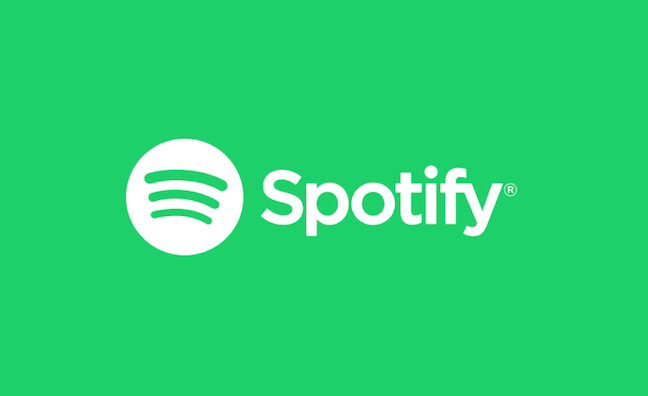While the post-IPO focus of Spotify’s earnings has been on user growth, the streaming giant has just revealed an even more eye-catching result – its first ever quarterly profit.
Spotify has always stressed a long-term strategy of growth over profits. But in the fiscal quarter ending December 31, 2018, the DSP had operating income of €94 million (£82.6m) after a series of consistent quarterly losses. It reduced operating expenses to €305m (£268.1m).
Net income was €442m (£388.5m), up from €43m (£37.8m) the previous quarter.
The streaming giant's share price was down 2.8% at the end of trading as investors noted slowing annual revenue growth and Q4 revenue was just below analysts' expectations.
Premium subscribers reached 96 million, up 36% year-on-year, which was the top end of Spotify’s guidance range. The company credited the performance to its Google Home promotion and annual Holiday campaign. It also has a long-term partnership with Samsung.
Apple Music is reportedly at around 56m premium subscribers but potentially ahead in the US.
Monthly active users grew 29% year-on-year to 207m, outperforming the high end of its guidance. Spotify said the performance in most markets exceeded expectations, with strong growth in Latin America and emerging regions.
For Q1 2019, the forecast guidance is for 215-220m monthly active users (up 24-27% year-on-year), 97-100m premium subscribers (up 29-33%) and total revenue of €1.35-€1.55bn (up 19-36%).
The full year 2019 forecast is for 245-265m monthly active users (up 18-28% year-on-year), 117-127m premium subscribers (up 21-32%) and total revenue of €6.35-€6.8bn (up 21-29%).
The forecast for 2019 subscribers shows a reduction in anticipated growth compared to 2018, when Q1 subscriber adds were forecast at 41-46% year-on-year and full year subscriber adds at 30-36% year-on-year.
Asked about what determines the range of the forecasts for 2019, Spotify CFO Barry McCarthy was blunt on the earnings call.
"Sometimes shit happens," he explained. "When that happens, we might end up at the bottom end of the range."
Spotify expanded to 78 countries from 65 as it launched across the Middle East and North Africa in mid-November. Streaming rival Deezer is also expanding in the region.
The company said users listened to more than 15 billion hours of content on the platform during Q4, with engagement up across both the ad-supported and premium tiers.
The 2018 discount holiday campaign – 99p/99 cents for three months – added 7m subscribers over six weeks. Spotify said subscriber churn is also down.
Full year revenue for 2018 was €5.259 billion (£4.62bn), up 28.6%. Investors are closely watching annual revenue growth, which is down on the 39% increase in 2017 and 52% in 2016.
Operating income for the year showed a €43m (£37.8m) loss.
Total Q4 revenue was €1.495bn (£1.31bn), up 30% year-on-year. Premium revenue was €1.320 billion (£1.16bn) in Q4, up 30%. Average revenue per user was €4.89 (£4.30), a 7% decline which resulted from growing family and student plan users.
It’s about driving a virtuous cycle, improving the user experience
Barry McCarthy
“I know investors have concerns about the continued decrease in ARPU,” said McCarthy. “[But] we don’t see a decrease in revenue. The subscribers who are paying us at a lower ARPU are earning exactly the same lifetime revenue in Q4 of 2018 that the earned in Q4 of 2017, because churn has decreased.”
He added: “The labels are earning the same amount of revenue they earned a year ago, even though the [ARPU] price is down we are growing faster. It’s about driving a virtuous cycle, improving the user experience – podcast is another dimension – and driving more lifetime value and driving more profit as a consequence by investing in the user experience.”
Ad-Supported revenue in Q4 was up 34% year-on-year to €175m (£153.8m). Gross Margin was 26.7%.
Spotify said more than 300,000 creators and their teams now use its artist platform on a monthly basis.
Ahead of the results, Spotify confirmed the acquisition of two podcast firms. It is planning to spend $400-$500m (£309m-£386m) on multiple acquisitions in 2019.
"We are seeing that people engage at twice the rate as non-podcast listeners," said CEO Daniel Ek of its content strategy. "We’re seeing that there are users that otherwise wouldn’t have considered Spotify who are now signing up to the platform. Over time that may have an implication for churn. We are certainly in the game of producing more of that original content."
With locations in New York, London, Los Angeles, Stockholm and Boston, Spotify paid out approximately €65m (£57.1m) associated with office builds in Q4. The full cost is projected to be €200m (£175.8m).









